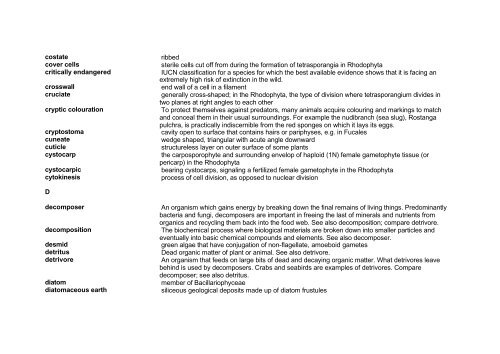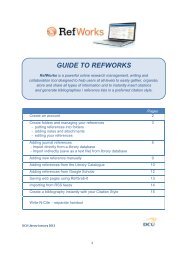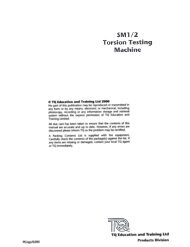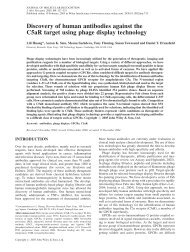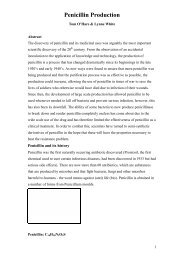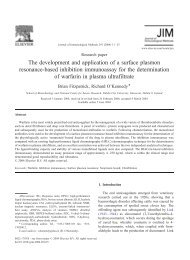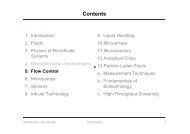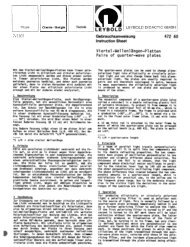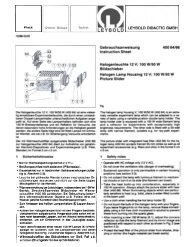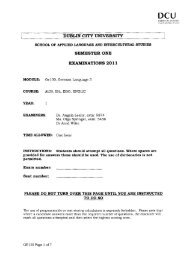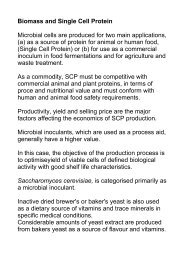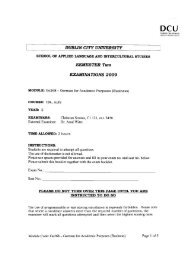Marine Glossary - DCU
Marine Glossary - DCU
Marine Glossary - DCU
You also want an ePaper? Increase the reach of your titles
YUMPU automatically turns print PDFs into web optimized ePapers that Google loves.
costate<br />
cover cells<br />
critically endangered<br />
crosswall<br />
cruciate<br />
cryptic colouration<br />
cryptostoma<br />
cuneate<br />
cuticle<br />
cystocarp<br />
cystocarpic<br />
cytokinesis<br />
ribbed<br />
sterile cells cut off from during the formation of tetrasporangia in Rhodophyta<br />
IUCN classification for a species for which the best available evidence shows that it is facing an<br />
extremely high risk of extinction in the wild.<br />
end wall of a cell in a filament<br />
generally cross-shaped; in the Rhodophyta, the type of division where tetrasporangium divides in<br />
two planes at right angles to each other<br />
To protect themselves against predators, many animals acquire colouring and markings to match<br />
and conceal them in their usual surroundings. For example the nudibranch (sea slug), Rostanga<br />
pulchra, is practically indiscernible from the red sponges on which it lays its eggs.<br />
cavity open to surface that contains hairs or pariphyses, e.g. in Fucales<br />
wedge shaped, triangular with acute angle downward<br />
structureless layer on outer surface of some plants<br />
the carposporophyte and surrounding envelop of haploid (1N) female gametophyte tissue (or<br />
pericarp) in the Rhodophyta<br />
bearing cystocarps, signaling a fertilized female gametophyte in the Rhodophyta<br />
process of cell division, as opposed to nuclear division<br />
D<br />
decomposer<br />
decomposition<br />
desmid<br />
detritus<br />
detrivore<br />
diatom<br />
diatomaceous earth<br />
An organism which gains energy by breaking down the final remains of living things. Predominantly<br />
bacteria and fungi, decomposers are important in freeing the last of minerals and nutrients from<br />
organics and recycling them back into the food web. See also decomposition; compare detrivore.<br />
The biochemical process where biological materials are broken down into smaller particles and<br />
eventually into basic chemical compounds and elements. See also decomposer.<br />
green algae that have conjugation of non-flagellate, amoeboid gametes<br />
Dead organic matter of plant or animal. See also detrivore.<br />
An organism that feeds on large bits of dead and decaying organic matter. What detrivores leave<br />
behind is used by decomposers. Crabs and seabirds are examples of detrivores. Compare<br />
decomposer; see also detritus.<br />
member of Bacillariophyceae<br />
siliceous geological deposits made up of diatom frustules


